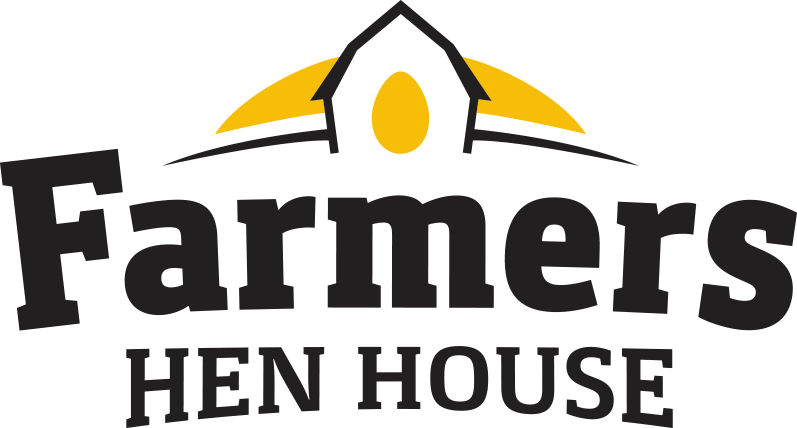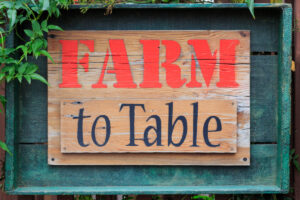 The Farm to Table Movement became popular in the 60s and 70s as the public began to understand not only how and where their food was processed, but what herbicides and pesticides were being used to grow and process their food. In efforts to eliminate distance and chemicals from their food production, as well as providing support for their local community of farmers, the Farm t0 Table movement grew in response and became an American hallmark of quality food production and commerce for generations to come.
The Farm to Table Movement became popular in the 60s and 70s as the public began to understand not only how and where their food was processed, but what herbicides and pesticides were being used to grow and process their food. In efforts to eliminate distance and chemicals from their food production, as well as providing support for their local community of farmers, the Farm t0 Table movement grew in response and became an American hallmark of quality food production and commerce for generations to come.
The Farm to Table Movement (FTTM) is comprised of three main principals:
Food Independence & Security
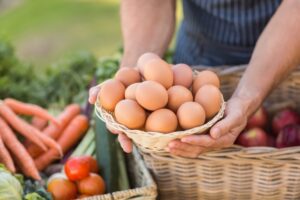
The Farm to Table movement sought to improve food security for local communities by providing a sustainable source of fresh and locally sourced food. Rather than being dependent upon outside sources and imports, FTTM made it so that communities were empowered to create a local food supply system that weaned them off of outside food sources and improved their food security. With our Amish and Mennonite farmers, food independence and security has been a core principal for generations. Living off the land and using what the land provides has allowed us to ensure that our community and local restaurants always know what food to expect and when to expect it.
Proximity
The Farm to Table movement is dependent on various stakeholders (e.g. farmers, processors, retailers, restaurants, consumers) all living and operating in proximity to one another. Existing in proximity not only ensures a fresh and sustainable food source, but also reduces the environmental impact of transporting ingredients across states or countries. We participate in the principal of proximity by having the majority of our farms within a 6 mile radius. This is not the case for many companies.
Sustainability
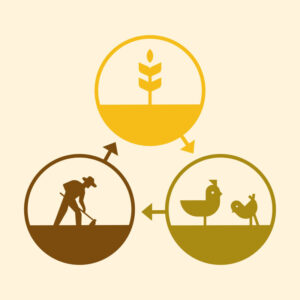 The core idea here is that farm to table food systems exist in a way that doesn’t stifle “the ability of future generations to meet their food needs,” meaning that it doesn’t destroy resources in the process of producing them. This is true for our farmers from the way they care for the soil, utilize manure from their hens for fertilizer, and operate their own feed mills. We call this process our On-Farm Grain Cycle.
The core idea here is that farm to table food systems exist in a way that doesn’t stifle “the ability of future generations to meet their food needs,” meaning that it doesn’t destroy resources in the process of producing them. This is true for our farmers from the way they care for the soil, utilize manure from their hens for fertilizer, and operate their own feed mills. We call this process our On-Farm Grain Cycle.
While the Farm to Table Movement has become popular since the 60s and 70s, the Farm to Table way of life has been in place for centuries.
This has been the case for Farmers Hen House and our Amish and Mennonite farmers since the beginning. Since the 1800s, when our area in southeast Iowa was first settled by Amish and Mennonite farmers, one of the missions of our community has been to cultivate food independence and security, and to do so sustainably. If you tour our farms you’ll discover that not only do our farmers raise hens and produce eggs, but they also grow a variety of livestock, crops, and plant large gardens that provide a diverse bounty of fruits and vegetables. Much of the food that our farmers produce is distributed throughout our local community through farmers’ markets, on-farm stands, and independent local retailers.
Each of the principals of the Farm to Table movement are evident throughout our community and the life of farmers…
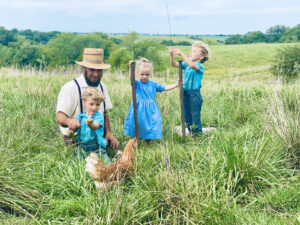 But interestingly many of our farmers and individuals and families in our community are aware that they’re event participating in such a movement, because this has always been the way of life for them. Sowing and harvesting sustainably to protect the soil so that farms can be handed down from one generation to the next; sharing the abundance of what the harvest provides with your community so that families are fed; and keeping all of this within a small radius of production and distribution has been one of the hallmarks of farm communities across the country, with our Amish and Mennonite farm community no exception.
But interestingly many of our farmers and individuals and families in our community are aware that they’re event participating in such a movement, because this has always been the way of life for them. Sowing and harvesting sustainably to protect the soil so that farms can be handed down from one generation to the next; sharing the abundance of what the harvest provides with your community so that families are fed; and keeping all of this within a small radius of production and distribution has been one of the hallmarks of farm communities across the country, with our Amish and Mennonite farm community no exception.
At Farmers Hen House, we’re committed to bringing the freshest ingredients to your table from our farms, and do so in ways that provide peace-of-mind to both you and our farmers, who continue to farm like the world depends on it, and show that we’re more than our pasture raised, free-range, and organic eggs. Check out our recipe’s page for some great farm to table worthy recipes!
